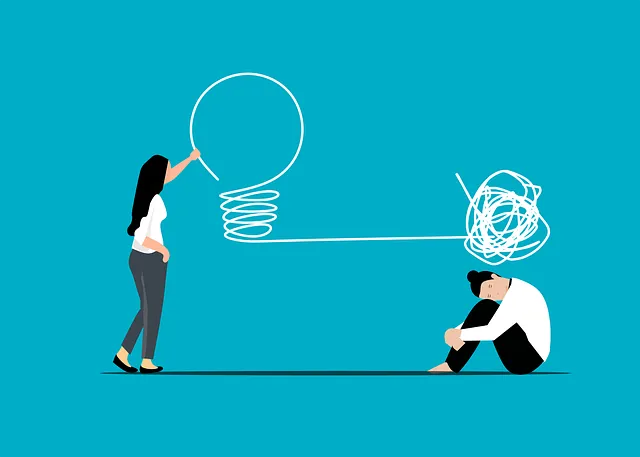Positive thinking exercises, including mindfulness and structured programs, are effective tools for improving mental well-being and quality of life, as offered by Littleton Kaiser Permanente mental health number. These practices reduce stress, promote calm, and enhance resilience through regular activities like journaling and meditations. Integrating these exercises into daily routines boosts confidence and fosters a healthier mindset over time. Combining evidence-based practices with empathy at Littleton Kaiser Permanente empowers patients, reduces stigma, and improves job satisfaction among mental health professionals.
At Littleton Kaiser Permanente, we believe in the power of positive thinking exercises to enhance mental health. This article explores how these powerful tools can be seamlessly integrated into daily routines, offering a comprehensive guide for anyone seeking to improve their well-being. From understanding the fundamentals to overcoming challenges and tracking progress, we delve into practical strategies that have proven effective in fostering resilience and optimism. Discover real-life application stories and unlock your potential through the transformative power of positive thinking.
- Understanding Positive Thinking Exercises
- Integrating Daily Practice into Routine
- Overcoming Challenges and Tracking Progress
- Benefits and Real-Life Application at Kaiser Permanente Littleton
Understanding Positive Thinking Exercises

Positive thinking exercises are a powerful tool for enhancing mental well-being and overall quality of life. These practices involve cultivating optimistic attitudes, reframing negative thoughts, and focusing on positive outcomes. They can range from simple mindfulness techniques to structured programs designed to address specific mental health concerns. For instance, patients at Littleton Kaiser Permanente mental health number often engage in such exercises as part of their therapy, which has been shown to significantly reduce stress levels and promote a sense of calm.
The effectiveness of these exercises lies in their ability to challenge and reshape one’s mindset. By actively focusing on the positive aspects of life, individuals can better cope with stressors, improve their resilience, and even prevent burnout. Incorporating regular practice into daily routines, whether through journaling, affirmations, or guided meditations, forms the core of many Mental Health Education Programs Design. This proactive approach to mental health management empowers people to take control of their emotional well-being, fostering a more optimistic outlook on life.
Integrating Daily Practice into Routine

Integrating a daily positive thinking exercise into your routine can seem daunting at first, but it becomes easier with consistency and practice. Start small, dedicating just 10-15 minutes each day to a mindful activity that focuses on cultivating gratitude or promoting a sense of inner peace. Many find success through practices like journaling, where they reflect on the day’s positives or set intentions for tomorrow. The key is to choose an activity that resonates with you—be it meditation, a short walk in nature, or even a simple act of kindness towards yourself or someone else.
For those seeking guidance, resources are readily available, including those offered by Littleton Kaiser Permanente mental health services. Their programs often include Compassion Cultivation Practices designed to enhance emotional well-being and foster cultural sensitivity in mental healthcare practice. By making these exercises a regular part of your day, you can boost your confidence and overall resilience, creating a healthier and more positive mindset over time.
Overcoming Challenges and Tracking Progress

Overcoming challenges is a crucial aspect of any positive thinking exercise, especially when individuals are navigating mental health issues. At Littleton Kaiser Permanente, their mental health services aim to empower patients by providing tools to confront and overcome barriers. This often involves teaching coping mechanisms tailored to each individual’s unique circumstances. For instance, mindfulness techniques can help manage stress and anxiety while cognitive-behavioral therapy (CBT) offers strategies to reframe negative thoughts. By combining these evidence-based practices with empathy building strategies, mental health professionals foster a supportive environment, enhancing cultural sensitivity in healthcare practice and reducing the stigma associated with mental illness.
Tracking progress is an integral part of this process as it allows individuals to see their growth and achievements. Encouraging patients to maintain a journal or use digital tools to record their thoughts, feelings, and accomplishments provides tangible evidence of their journey. This self-monitoring can be powerful in building resilience and motivation. Moreover, regular check-ins with healthcare providers offer an opportunity to reflect on progress, adjust strategies if needed, and celebrate milestones reached, fostering a sense of accomplishment and empowerment.
Benefits and Real-Life Application at Kaiser Permanente Littleton

At Littleton Kaiser Permanente, the implementation of positive thinking exercises has yielded remarkable benefits for both employees and patients. By integrating practices like mindfulness meditation into their mental health services, they’ve seen a significant reduction in stress levels among staff, leading to improved job satisfaction and overall well-being. This shift towards a more positive mindset hasn’t just enhanced employee experience; it’s also translated into better patient care. Patients at Littleton Kaiser Permanente often report feeling more at ease and empowered during their treatments, with mental wellness podcast series production playing a crucial role in disseminating evidence-based techniques for managing anxiety and depression.
The real-life application of these exercises goes beyond individual benefits. By fostering a culture of positive thinking, Littleton Kaiser Permanente has created an environment that promotes resilience among its mental health professionals. This is particularly significant given the high-stress nature of their work. A risk assessment for mental health professionals, conducted internally, revealed that incorporating positive thinking exercises into their routine significantly lowered burnout rates and improved job performance. These initiatives not only contribute to the mental wellness podcast series production but also ensure that staff are equipped to provide top-tier care to patients seeking support for their mental health needs at Littleton Kaiser Permanente.
Positive thinking exercises, when integrated into daily routines, can significantly enhance mental well-being. As evidenced by Kaiser Permanente Littleton’s successful implementation, these practices offer a powerful tool for self-improvement and stress management. By overcoming challenges through consistent practice and tracking individual progress, individuals can unlock the benefits of improved resilience, increased happiness, and enhanced overall mental health, as demonstrated by the positive impact on the Littleton Kaiser Permanente community.






